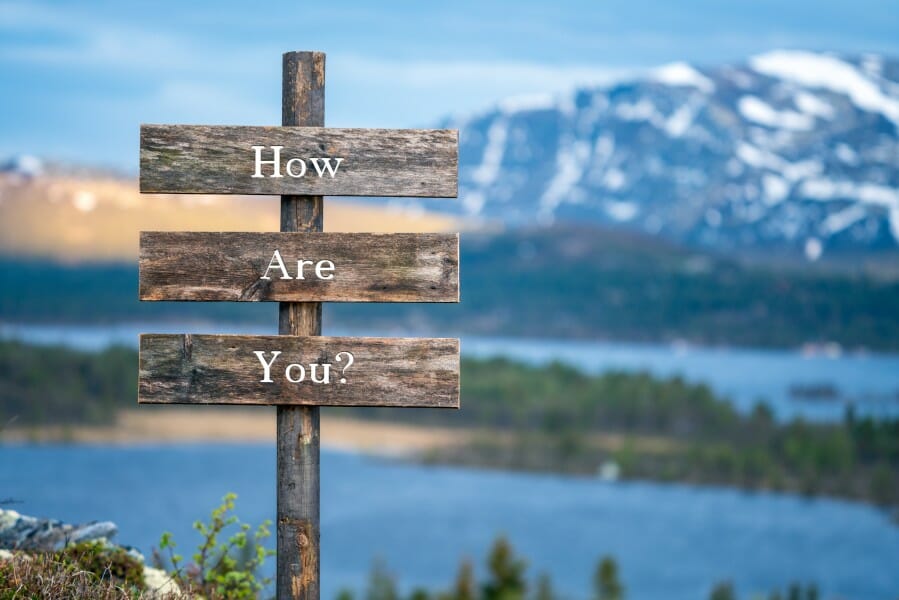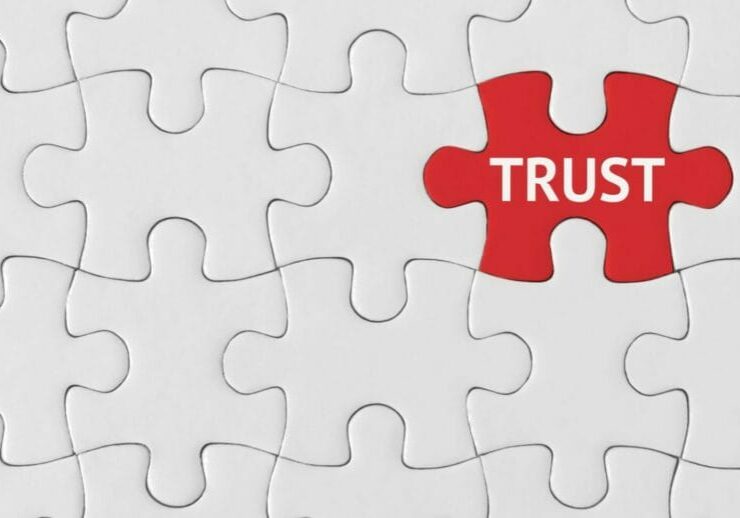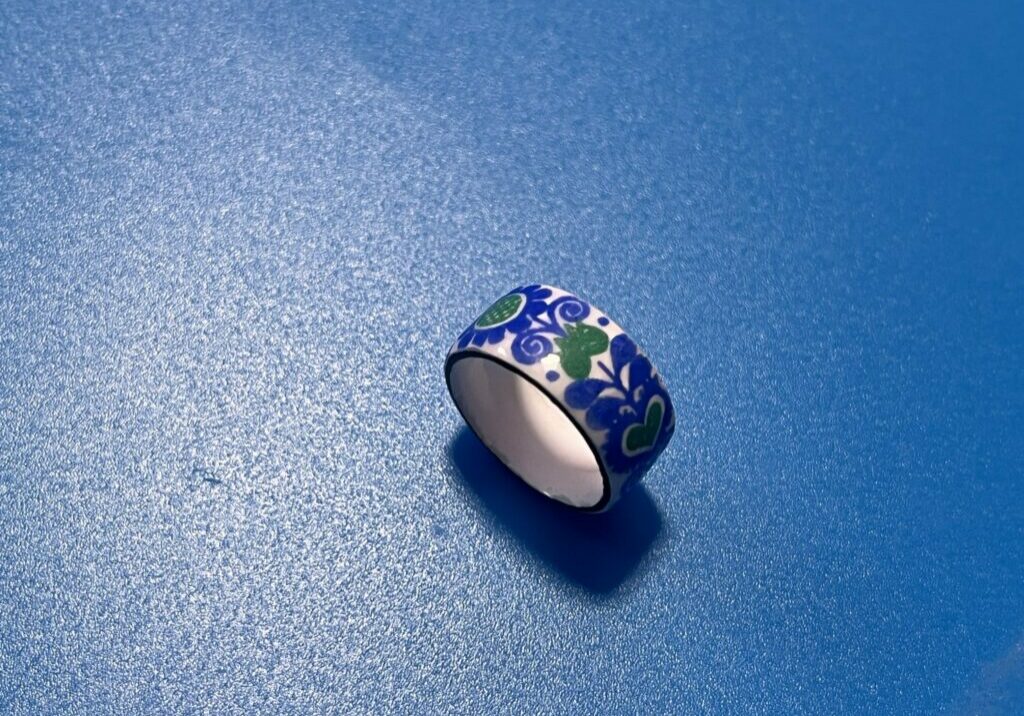How Ya Doin’? It’s Actually a Life-Changing Question.

I was in a meeting yesterday, and as people filed into the Zoom room, we were doing that small talk thing. I asked one of the attendees that first question that many of us ask in those situations, “How ya doin’?” She flinched and said, “Meh…I mean ok. I’m alright.” I told her that she wasn’t working real hard to sell that. We laughed and moved on with the meeting. Later that day, in another meeting I had almost the exact same experience. I asked, “How ya doin’?” I got, “Erm….ummm….I’m good.” I made a similar comment about the believability of her response, we laughed and moved on with our lives (and the meeting).
In the wake of the lackluster responses, I honestly didn’t think much about them (beyond imitating Joey from Friends in my head, “How YOU doin?!”). Isn’t that sad? I had two interactions with folks who clearly weren’t doing ok. I made a joke. We laughed. The day ensued.
Later that same day, I was prepping for my podcast, The Corporate Bartender, and was chatting with the day’s guest, Jeff Eschliman. I asked the obligatory question in the pre-show. “Hey Jeff, thanks for being on the show today (here it comes…), how ya doin’?” This is where my day, my thought pattern, and my vision of self was completely upended. I know, those are some big statements. What on earth did this dude say to cause such a reaction? When asked, Jeff said two simple words. “Killing it!”
Killing it!
How am I doin’?
His words stopped me in my tracks. I’d gone from a couple of responses that have become pretty normal in this post-Covid world to a guy having a completely different experience. Mind? Blown. It made me think about my own state of affairs. How was I doing? Not great. Not terrible. I was “Erm…ummm. I’m ok.”
If you know me, or have read our book You, Me, We – Why We All Need a Friend at Work (and How to Show Up as One!), then you know that I’m no stranger to depression and anxiety. I’ve struggled with them my whole life.
I woke up this morning thinking hard about this exchange. I wanna be killing it (and really FEEL that way). I realized that despite how things look on the outside, I’m still struggling mightily with some things, and carrying some guilt for some others. Why wasn’t I killing it? I have a great gig. I have a bestselling book out. I do this fun podcast. I live in a great spot. I’ve got a wonderful partner. I play in a band. My kids are doing well. What the hell, Eric? By all rights, you ARE killing it. Why can’t you just say it? I can’t say it because I don’t believe it. I don’t believe it because the voices in my head tell me things (most of which aren’t true), and it seems logical to just believe them – I mean they’re in my head and I’m pretty smart, so they must be too.
As the podcast continued, we got into a conversation about regular reflection, taking stock, celebrating the wins, and making plans. Jeff has a system called the Zen Model for Success. It’s about intentionality, discipline, and the power of a one page plan. It got me thinking.
I was having a conversation with another client yesterday about their executive team’s inability to make decisions. They talked about them. They admired the problems. They even dipped into analysis every now and again, but they didn’t DO anything. Our interview with Jeff made me realize that I think about the issues in my world. I admire the problems. I dip DEEP into analysis all the friggin’ time. But I ain’t doing a whole lot to move the needle. At SkyeTeam we preach the gospel of intentionality all the time. We talk about the “uncommon discipline” it takes to build a high performing team, and I love me a good system.
I am doing none of those things personally. Professionally, yes. Intentional? Check! Disciplined? Check! (Well, mostly check.) System? I’ve got systems for days. Personally, that’d be a no, a not even close, and a hard nope.
From Today I’ll be doin’ – Intentional Self-Care
We know that self-care is so important, especially in the hectic, meeting-to-meeting, back-to-travel world that many of us live in these days. Why is it then that a lot us “don’t have the time” for self-care. We’ve got the time to doom scroll TwitterXBookTokChatGram. We’ve got the time to binge watch Picard (OMG, if you haven’t you really should….it’s awesome!). We’ve got the time for all sorts of unhelpful things. Maybe we feel selfish or guilty for taking that self-care time? I mean, come on, we’ve got actual work to do. Maybe we just don’t want to deal with what we might unpack? I dunno. I know a lot of us have good intentions, I often talk about how crowded gyms are in January. We talk a good game, but doing the work is HARD (and soooooo important).
They tell us every time we get on an airplane that we need to put our own oxygen masks on first. We can’t help other people if we can’t breathe. I learned recently that the ancient Greek word Hērōs (ἥρως) literally means “protector” or “defender,” and in Greek mythology, heroes must have the “strength for two.” Again, you’ve gotta take care of YOU before you can take care of (lead effectively, manage well, parent, etc., etc., etc.) anyone else.
This is all well and good, Eric, but what can I do to change this mindset? I’m gonna go back to three keys: Intentionality, Discipline, and Structure. I’m going to start implementing (at least a version of) Jeff’s methodology. I’m going to block time for reflection, celebration, and planning. I’m going to do this in a space that Jeff calls a Day of Zen. Author and podcaster Neil Pasricha calls these “Untouchable Days,” and he uses them more for focus, reflection, and deep creative work. He does them every week. Jeff’s are all about you, and he does them once a month. Whatever works for you. Just do them with intention. Have the discipline to stick to them. And have some sort of system, don’t just wing it.
Whataya say? Let’s put on our oxygen masks, don our hero’s capes, and take some solid care of ourselves. We’ll be killing it in no time. Who’s with me?

Let's Connect





